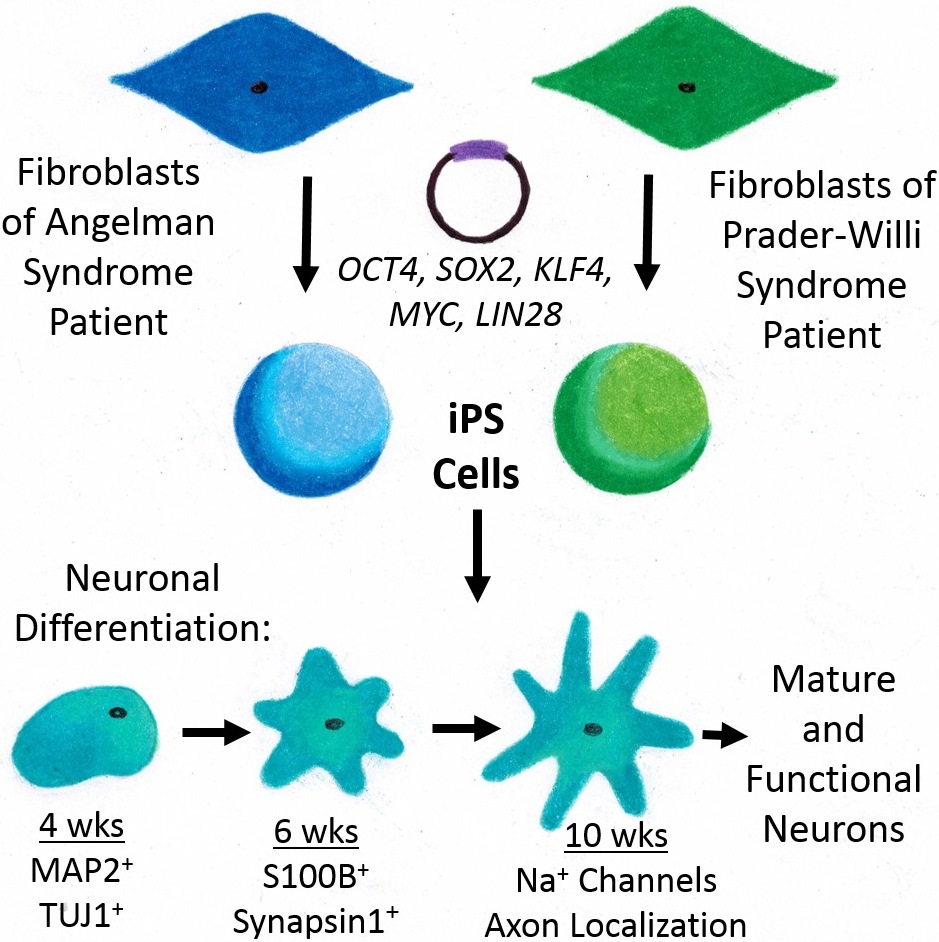UConn Professors Provide iPS Cells for Neurological Research Use
Marcos Salazar
March 3, 2014

The KeraFAST community of researchers and collaborators keeps increasing at an exceptional rate. We’ve gained some traction in recruiting highly-respected institutions to join our company to offer their research reagents created through hard work and passion within their laboratories. A perfect and recent example comes from the University of Connecticut (UConn), where investigators have produced induced pluripotent stem (iPS) cells derived from Angelman Syndrome (AS) and Prader-Willi Syndrome (PWS) patients. UConn Today, a news blog found on the UConn website, reported on the working relationship created between the investigators behind these iPS cells and KeraFAST.
Dr. Marc Lalande and Dr. Stormy Chamberlain, both professors within UConn Health Center’s department of Genetics and Developmental Biology, have extensively researched AS and PWS to gain core knowledge on the genetic and molecular influences leading to the development of these neurological disorders. To study and understand mechanisms related to AS and PWS, Dr. Lalande and Dr. Chamberlain collaborated to reprogram skin fibroblasts from AS and PWS patients, inducing stem cell behavior within these cells known as iPS cells.
AS iPS cells harbor a 5 Mb deletion in maternal chromosome 15, while PWS iPS cells contain a 5 Mb deletion in paternal chromosome 15. These iPS cells recapitulate inherent epigenetic characteristics, as the methylation imprint pattern is not erased during cell reprogramming and is maintained during cell culture. In addition, these iPS cells express typical neuronal markers during cell differentiation and have the potential to mature to functional neurons.
Because these iPS-derived neurons have been reprogrammed, they will offer researchers the opportunity to study disease progression of not only AS and PWS, but also a broad range of neurological disorders. These iPS cells have the ability to be utilized as essential research tools in the development of human disease model systems for drug discovery studies and genetic therapy research. “The potential for producing targeted cell therapies from stem cells to treat disease and repair or regenerate tissues and organs defines the future of personalized medicine,” reported Dr. Lalande, who is also executive director of Genomics and Personalized Medicine Programs at UConn and the director for both the UConn Stem Cell Institute and the Institute for Systems Genomics.
Both Dr. Lalande and Dr. Chamberlain identify the value and potential for these iPS cell lines, and, for this reason, have chosen to share their cells with the rest of the biomedical research community across the world through KeraFAST. The impact of this agreement between Dr. Lalande and Dr. Chamberlain and KeraFAST is featured as a piece published in UConn Today just last week. Access the article by clicking the following link:
UConn Today: iPS Cell Lines Go Global
Learn more about Dr. Lalande’s and Dr. Chamberlain’s iPS cell lines:
Prader-Willi Syndrome iPS Cells
Tags:
Induced pluripotent stem (iPS) cells, Angelman Syndrome, Prader-Willi Syndrome, UBE3A, E3 ubiquitin ligase, human stem cells, snoRNAs, snurf
Reference:
- Chamberlain SJ, Chen PF, Ng KY, Bourgois-Rocha F, Lemtiri-Chlieh F, Levine ES, Lalande M. Induced pluripotent stem cell models of the genomic imprinting disorders Angelman and Prader-Willi syndromes. Proc Natl Acad Sci U S A. 2010 Oct 12;107(41):17668-73.


